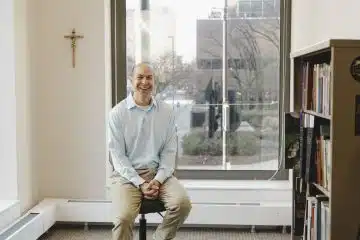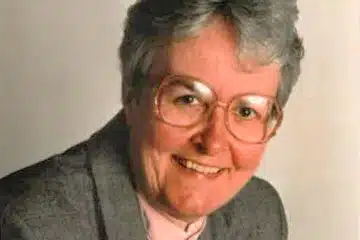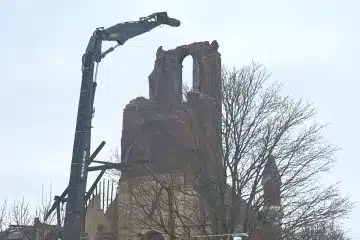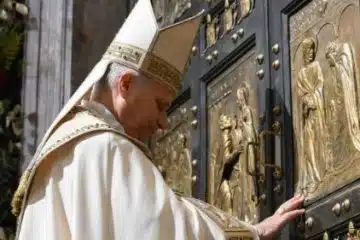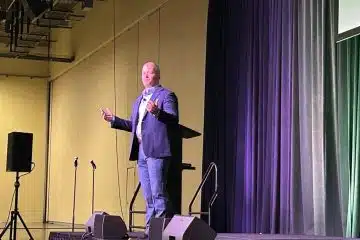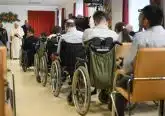Workshop helps parishes welcome those with mental illness
Monday, October 4, 2010
By David Eck
DAYTON DEANERY — Acceptance and support of people with mental illness is key to their recovery, and a workshop at St. Francis of Assisi Parish in Centerville later this month will help parish workers and volunteers better serve these parishioners.
The Oct. 28 workshop will help raise awareness and provide the resources parish personnel need to bring parishioners with mental illness into the life of the parish.
 |
| The logo for the National Catholic Partnership on Disability’s new initiative to raise awareness of mental illness uses the symbolism of a stained-glass window to show the importance of every member of the church. (CNS/courtesy of National Catholic Partnership on Disability) |
Addressing the pastoral needs of those with mental illness is a new endeavor for the Cincinnati archdiocese.
“We have never done any type of workshop before on mental illness,” said Tanya Stager, assistant director of the archdiocesan Office of Evangelization and Catechesis. “It is definitely a community issue and problem and the need for understanding is so paramount.”
Estimates show that as many as 20 percent of the population today has some type of mental illness including anxiety, depression and chemical dependency, Stager said.
The daylong workshop will raise awareness of mental illness, identify types of mental illness and explain the treatment and recovery process. Discussions will focus on the affect mental illness has on family life and the community. The role of Catholic faith in recovery and the pastoral response to a person with mental illness will also be addressed.
The workshop is designed for people who regularly deal with parishioners including pastors, staff, catechists, volunteers, healthcare workers and counselors.
“To be accepting, to be supportive of a person, is so important for their recovery,” Stager said. “You don’t want to ostracize the person, but you want to direct them to resources that help.”
The keynote speakers at the workshop will be Deacon Thomas Lambert and Lissette Mira-Amaya. Both are active in dealing with people suffering from mental illness and see treating it as a social justice issue.
Deacon Lambert, who has a daughter with mental illness, is co-chair of the National Catholic Partnership on Disability’s Council on Mental Illness in Washington, D.C. He is a founding member and current board member of the Archdiocese of Chicago’s Commission on Mental Illness. He is also on the board of Pathways To Promise, an interfaith organization for outreach to people with mental illness and their families.
“He’s the one who really sees the value of faith communities and advocating for persons with mental illness and supporting persons with mental illness,” Stager said. “He sees the parish as an advocate.”
Mira-Amaya is clinical supervisor at Beacon Specialized Living Services. She is working to develop a program to assist individuals facing mental illness achieve greater levels of independence, recovery and community integration. She also works with the National Catholic Partnership on Disability in a project to help Catholic churches become more welcoming and learn to value and help integrate individuals with mental illness into the life of the church.
She has written several articles about the importance of the faith community in dealing with mental illness issues and the value of the parish in the recovery process, Stager said. She will discuss the types of mental illness and different treatments. Fluent in Spanish and English, she has nearly 30 years of experience in mental illness issues.
How welcome a person with mental illness feels depends on how accepting the parish is with that person, noted Stager, and educating parish staff and parishioners about the issue helps create that welcoming atmosphere.
“They are just as much a part of the community as anyone else,” she said. “We don’t understand mental illness. There’s a stigma because there’s a lack of understanding of what this is all about.”
The workshop will also provide resources staff and parishioners can use if they observe a mental health problem. Discussions will center on how to help the mentally ill maintain their faith life, which also aids recovery and leads to a positive lifestyle, Stager said. It’s a ministry of care and compassion.
“It’s not a stigma to have a mental illness any more than it is a stigma to have the flu or to have a broken arm,” Stager said. “There is a recovery, and there is treatment, and there is therapy, and this is the same thing with mental illness.”
David Eck can be reached at [email protected].




